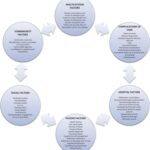Health care programming is a specialized field within software development focused on creating and maintaining software applications and systems used in the healthcare industry. It encompasses a wide range of activities, from developing electronic health records (EHR) systems to creating software for medical devices and telehealth platforms. Ultimately, health care programming aims to improve patient care, streamline healthcare operations, and enhance the efficiency of medical professionals.
The applications of health care programming are vast and varied. Hospitals and clinics rely on complex software systems for managing patient data, scheduling appointments, billing, and inventory. These systems need to be robust, secure, and user-friendly, requiring specialized programming expertise. Furthermore, medical devices, from diagnostic equipment to life-support systems, are increasingly software-driven, demanding intricate and reliable code to ensure accurate and safe operation.
Beyond hospital management and medical devices, health care programming plays a crucial role in emerging fields like telehealth and remote patient monitoring. Developing secure and user-friendly platforms for virtual consultations, remote diagnostics, and continuous patient monitoring requires programmers with a deep understanding of both software development and healthcare workflows. This also includes creating mobile health applications (mHealth apps) that empower patients to manage their health, track medications, and communicate with healthcare providers.
In essence, health care programming is at the heart of modern healthcare innovation. It bridges the gap between technology and medicine, enabling advancements that improve patient outcomes and transform the way healthcare is delivered. As the healthcare industry continues to evolve, the demand for skilled health care programmers will only continue to grow, making it a vital and impactful field.
